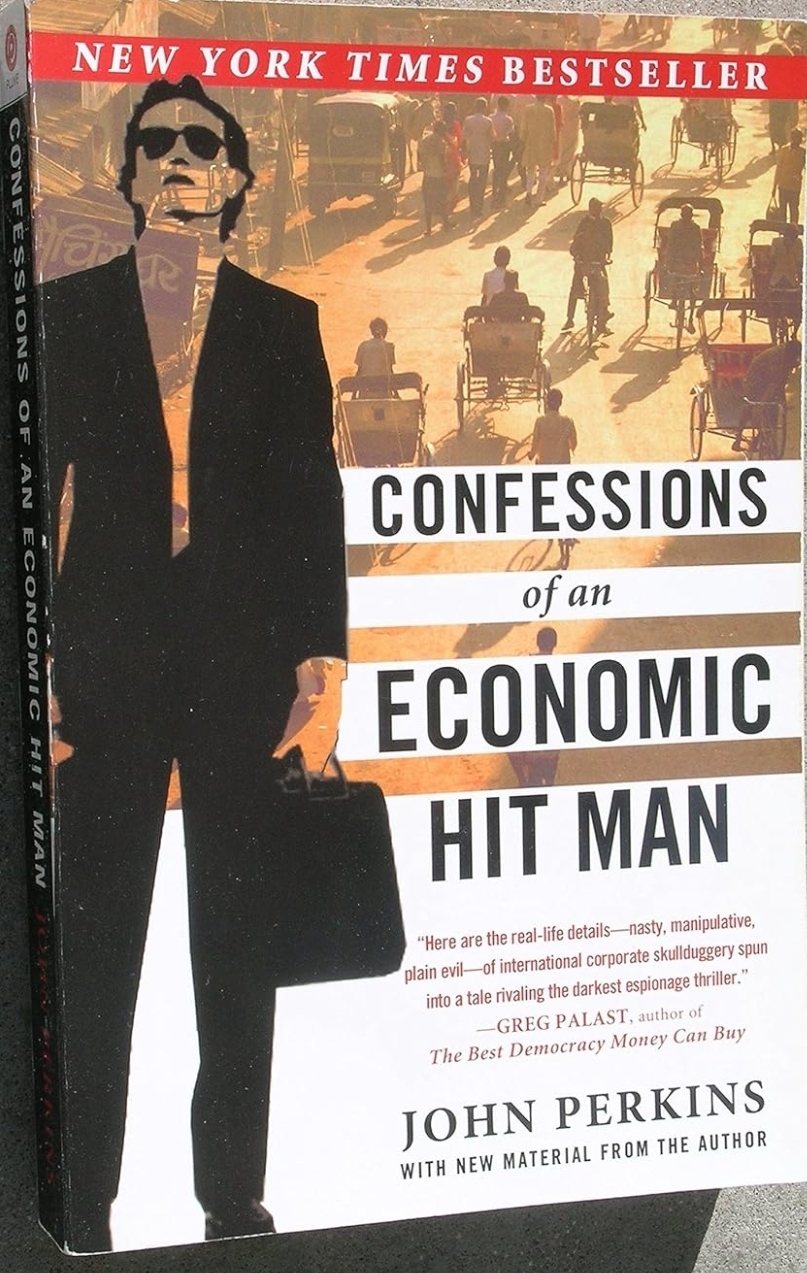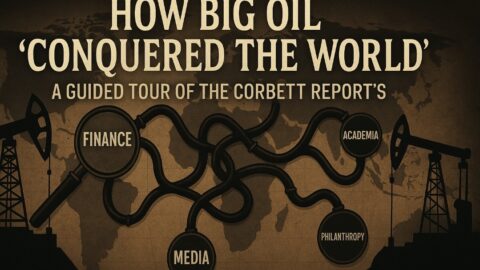John Perkins’ Confessions of an Economic Hit Man is a revealing memoir that exposes the underhanded methods used by powerful corporations and governments to exert economic control over developing nations. Perkins, who worked as an economic consultant for a global consulting firm, describes his role in persuading leaders of developing countries to accept massive loans for infrastructure projects, which ultimately benefitted U.S. interests at the expense of the nations involved. The book combines personal narrative with global insights, offering a compelling critique of the systems of economic and political exploitation.
Summary and Key Themes
Role of the Economic Hit Man (EHM)
- Perkins describes EHMs as professionals hired to convince developing countries to accept large loans from institutions like the World Bank or IMF for infrastructure projects (dams, highways, power plants).
- The catch: The contracts often benefitted U.S.-based corporations and came with inflated costs, ensuring these countries would remain in perpetual debt.
- The debt created dependency, giving the U.S. leverage over the country’s political and economic decisions.
Manipulation of Developing Nations
- EHMs use projections of economic growth to justify these loans, presenting inflated or unrealistic benefits.
- Once a country accepts the loan, they are trapped in a cycle of debt, forced to align with U.S. interests, such as voting with the U.S. at the UN or allowing military bases on their land.
- Leaders who resisted these deals often faced threats, coups, or assassinations.
Case Studies and Real-World Examples
- Ecuador and Jaime Roldós: Perkins recounts the story of Roldós, Ecuador’s president, who opposed U.S. corporate exploitation of his country’s oil resources. Roldós died in a mysterious plane crash, which Perkins suggests was orchestrated by “jackals” (covert operatives) after EHMs failed to control him.
- Panama and Omar Torrijos: Torrijos, the Panamanian leader who negotiated the return of the Panama Canal, also resisted U.S. influence. He, too, died under suspicious circumstances.
- Saudi Arabia: Perkins explains how the U.S. forged a deal with Saudi Arabia to recycle petrodollars into U.S. financial institutions, securing American economic dominance while ensuring Saudi compliance.
Mechanisms of Control
- The U.S. and multinational corporations use loans and development aid as tools of economic imperialism.
- Countries in debt are forced to privatize resources, reduce social spending, and open their markets to foreign corporations, often at the expense of their people.
Moral and Ethical Reflections
- Perkins grapples with his role as an EHM, acknowledging the harm caused by his work and the systemic nature of exploitation.
- He reflects on the broader implications of these practices, criticizing the corporatocracy—a coalition of corporations, banks, and governments—that perpetuates global inequality.
The Corporatocracy
- Perkins introduces the concept of the corporatocracy, where multinational corporations, financial institutions, and political powers collaborate to maintain control over the global economy.
- This system prioritizes profits over human and environmental well-being, perpetuating cycles of poverty and dependency in developing nations.
Call to Action
- Perkins encourages readers to challenge the status quo by advocating for ethical business practices, sustainable development, and political accountability.
- He emphasizes the power of individual and collective action in creating a more equitable global economy.
Writing Style
- The book is written in a conversational tone, blending personal anecdotes with broader economic analysis.
- Perkins’ first-hand accounts provide an insider perspective, making complex economic systems accessible to a general audience.
- The narrative is compelling and urgent, with an emphasis on moral responsibility and the need for change.
Impact and Legacy
- Confessions of an Economic Hit Man became a bestseller and sparked global conversations about economic imperialism.
- It has been both praised for its revelations and criticized by skeptics who question some of Perkins’ claims.
- Regardless, the book has inspired readers to examine the role of multinational corporations and financial institutions in perpetuating global inequality.
Key Lessons and Takeaways
Economic Control as Modern Imperialism:
- Traditional forms of colonization have been replaced by economic control, where developing nations are kept dependent through debt.
The Role of Corporations in Global Politics:
- Multinational corporations play a central role in shaping global policies, often prioritizing profits over people.
Moral Accountability:
- Perkins’ journey from complicity to whistleblower highlights the importance of acknowledging and addressing ethical responsibilities.
Empowerment Through Awareness:
- Understanding these systems is the first step toward challenging and dismantling them.
Conclusion
Confessions of an Economic Hit Man is a powerful exposé of the hidden mechanisms of economic imperialism. Perkins’ insider perspective sheds light on how financial institutions and corporations manipulate developing nations for profit, creating a cycle of dependency and exploitation. The book serves as both a cautionary tale and a call to action, urging individuals to advocate for fairness, sustainability, and global justice.






